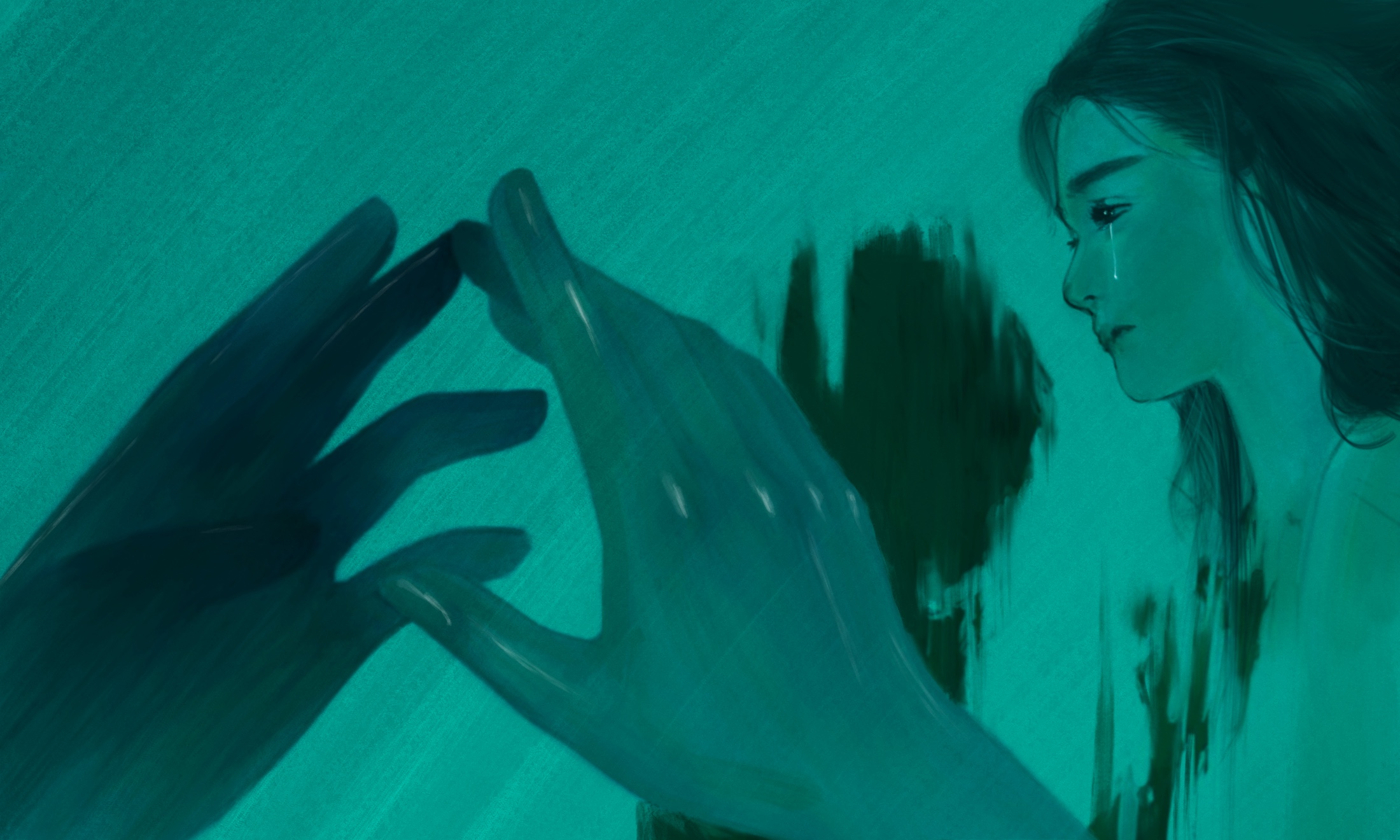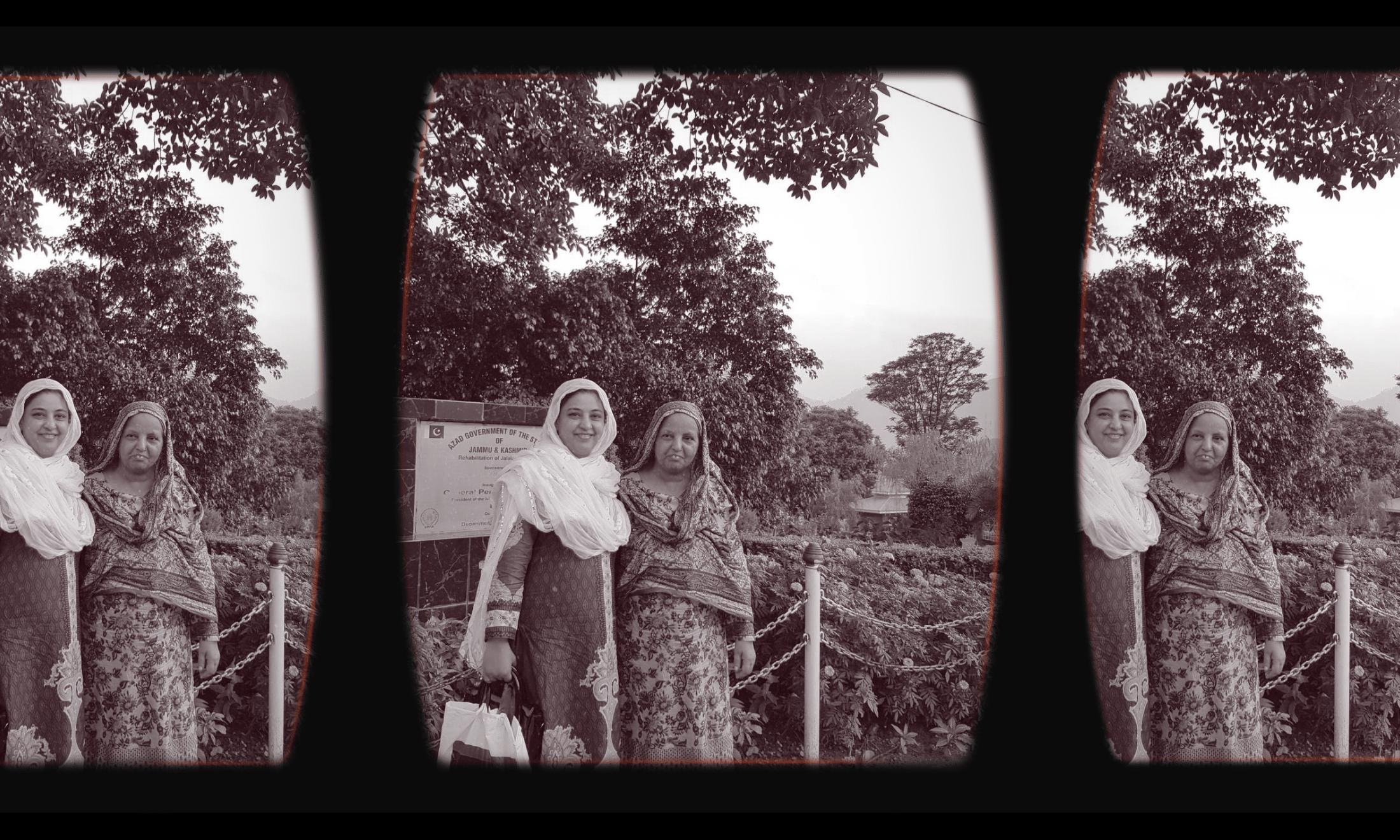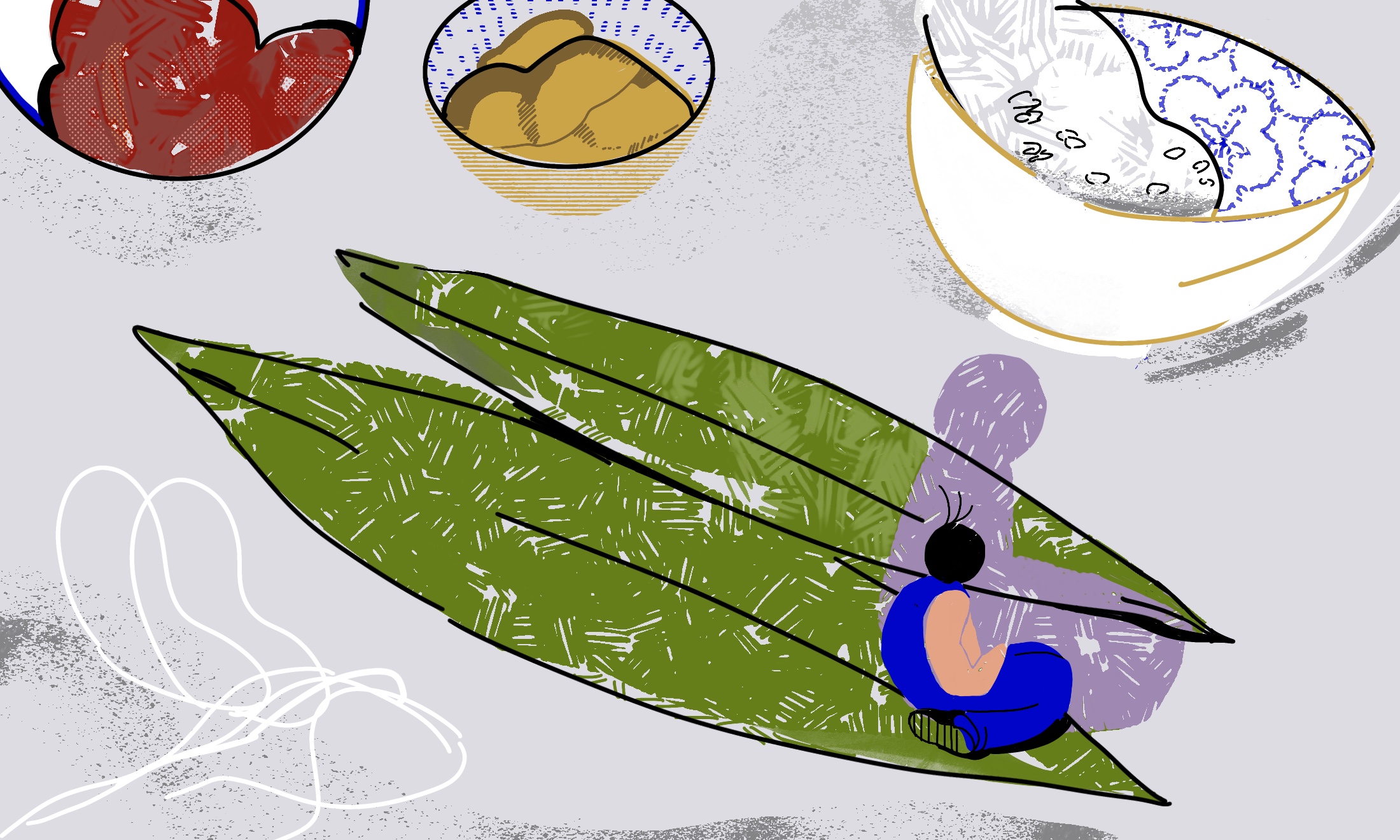Encountering my grandma’s ghost allowed me to grieve her absence
In Western ghost stories, ghosts are often bad omens, but Chinese culture teaches us that ghosts keep us connected with our loved ones in the afterlife.
Cici Peng
30 Nov 2022

Wingkei Hoang
Content warning: This article mentions death.
A thin, cow horn comb runs through my hair, separating each strand with little hiccups of resistance. I look down at my hands resting on my lap, and realise I am experiencing the simple luxury of having someone else comb my hair. I lean back, into a rising and falling chest, soft and warm. Her words fall like coins against my temple, clinking and tickling me.
“Why do you want hair like hay? Look at this,” a deep voice murmurs in Mandarin. I can feel fingers playing with the broken tufts of blond at the top of my head. Reflexively, I pat them down and turn around to see my grandma, sitting above me on her cream, leather sofa covered in a white lace net. I’m on the floor, plonked between her legs and facing the TV that’s repeating a Chinese opera show. I can tell it’s late from the smell in the room – the evasive candied perfume of the tuberose, a flower that only blooms at night and has become the perennial scent of sleepovers at grandma’s house. She brought the seeds, wrapped tightly in red linen, to Uganda one year; the flowers tease me whenever I get home after a late night out.
“Hey grandma, it’s trendy to dye your hair and it makes me self-conscious. I’ve been gelling it down,” I reply, huffing, pushing down the tufts.
“You kids,” she tuts.
Against the light, I twitch, lingering in the unstable boundary between dreaming and waking. Images of Chinese opera, tuberoses and white lace rise before me in quick succession only to evaporate against the sun piercing through my eyelids. I wake up, I smile – my grandmother came to me in a dream to comb my hair.
“The idea that they could still talk and visit each other offered her a sail to tide over the tragic inexplicability of loss”
When I tell my mum about my dream, she’s relieved, saying that she’s done everything to invite my grandma’s ghost into our home. For my mum, ghosts are not necessarily a bad thing – they can be, but that’s just like real life, she tells me. The afterlife is just an extension of our reality, separated by a gauze-like boundary; it’s unstable, allowing different worlds to coalesce in a series of brief encounters.
In China, the dead are never far off from the living. Our dreams are a soft site for them to land, plush and warm, a space of possibility. Chinese culture believes that in the first three years after a loved one dies, they exist between this life and the next in a spectral liminal space. When my grandma first passed, my mum saw her in dreams composed of childhood memories and fragmentary conversations. The idea that they could still talk and visit each other offered her a sail to tide over the tragic inexplicability of loss.
At first, I was resistant, angry even, at the blasphemy of my grandma being a ghost. How could she be an immaterial monster of horror stories? My understanding of phantoms was directly linked to my fascination with Western ghost stories – tales born out of phobia made to terrify us. I carried them around with me: dog-eared paperbacks of Edith Wharton, Susan Hill, Emily Brontë. Some people liked romances or murder mysteries, but I loved the undead. They were a manifestation of our deepest fears, ones we try to suppress yet they follow us around, clinging to us like a slick layer of oil. But, my mum’s categorisation of ghosts troubled and pricked through the Western stories that I’d found escape in.
“I’ve realised that ghost stories unveil more about the living”
Recently, I’ve realised that ghost stories unveil more about the living – about how we manage our grief and the anger that can surprise us. How could they leave us? And why do they then refuse to leave us alone? Maybe a part of us wants to keep our fears, our pain and our past alive. Attending to ghosts helps us unlearn our current mode of secular nihilism to instead bear witness to our grief and its accompanying mysteries.
There’s something to be said about how rituals that bring back the dead help us reimagine time itself. Xing Ming Festival, or Tomb Sweeping Day, has been observed for more than 2,500 years in China every 15th day after the Spring Equinox. Families visit the tombs of their ancestors to commemorate the lives of the departed by burning paper offerings – often paper money and paper homes. The act of burning creates a spiritual exchange, transforming cinders to a currency of care. Ghosts seem to need money in the afterlife, too. During this time of year, roads are always covered with a thin layer of ash. When there’s wind, you can reach out and touch embers floating, delicate like a moth’s wings.
My mother sets off large fires, she creates mountains of ash. One April, she bought a paper temple and decorated it herself, with flower stickers and a collage I made from cut-outs of gossip magazines – something to make her laugh. The temple seemed to be assembled by the nimblest of fingers, the centre unfolding like a spider’s web weaved out of neon green and pink explosions. We sparked the edge of the roof and watched the fire devour it. The heat of the flame felt like the warmth of being beheld. My mum smiled and sighed. “It’s been nine years now, I wonder how she is.”
Rituals dedicated to the dead endow an attentive awareness to the miracle of life. In a world that seems so preoccupied with propelling forwards, acts of remembrance like this bend time itself. They remind us that the past is just as solid as what’s to come – how it informs everything we do. My mum always tells my sister and I to slow down, that there’s no need to rush. She says, in the West you might be focused on your future, but in our culture, we are always looking back on our past lives: we carry all our ghosts with us. When we die, my mum says, we move backwards, reaching out towards the past. Time itself unwinds, not as a linear process but a revolving gyre to a space that’s every past, present and future at once.
I’ve been trying to practise daily rituals that challenge the structures of our lives, of the way we interpret time in a forward-trudging world. I recently spent hours looking at old photographs of my mum as a child with my grandma. I traversed through almost half a century to her childhood. The child looks like a stranger, apart from the dreamy glint in her eyes that holds the undeniable essence of my mum. Photographs themselves are ghostly in their ability to freeze the past in a chemical process that imprints an exact moment in time.
“Rituals dedicated to the dead endow an attentive awareness to the miracle of life”
When I was at university, I read Roland Barthes’ Camera Lucida, his reflection on photography that he wrote after his mother died. In it, he constantly refers to the “ghostly” and “phantom-like” aspects of photography, how it’s “a magic, not an art”. Our professor said that when Barthes looked at his mother’s photograph, he realised that her death implied his own. Yet, when I read it, I recognised a sense beyond grief, a sense of miraculous possibility. He writes that a photograph of a loved one “will touch me like the delayed rays of a star”. The future tense of certainty captures just how omnipresent departed loved ones can be as time collapses on itself with their loss.
Walking home one night from a party, I smelt the familiar perfume of the tuberose, rising up and embracing me. Just like that, my grandmother is in the air again.
The contribution of our members is crucial. Their support enables us to be proudly independent, challenge the whitewashed media landscape and most importantly, platform the work of marginalised communities. To continue this mission, we need to grow gal-dem to 6,000 members – and we can only do this with your support.
As a member you will enjoy exclusive access to our gal-dem Discord channel and Culture Club, live chats with our editors, skill shares, discounts, events, newsletters and more! Support our community and become a member today from as little as £4.99 a month.

How Nancy Pelosi’s trip to Taiwan revealed my family’s deep political differences

I’m relearning Urdu to help me cope with losing my nani

China’s government is targeting ‘sissy’ men, with devastating consequences






